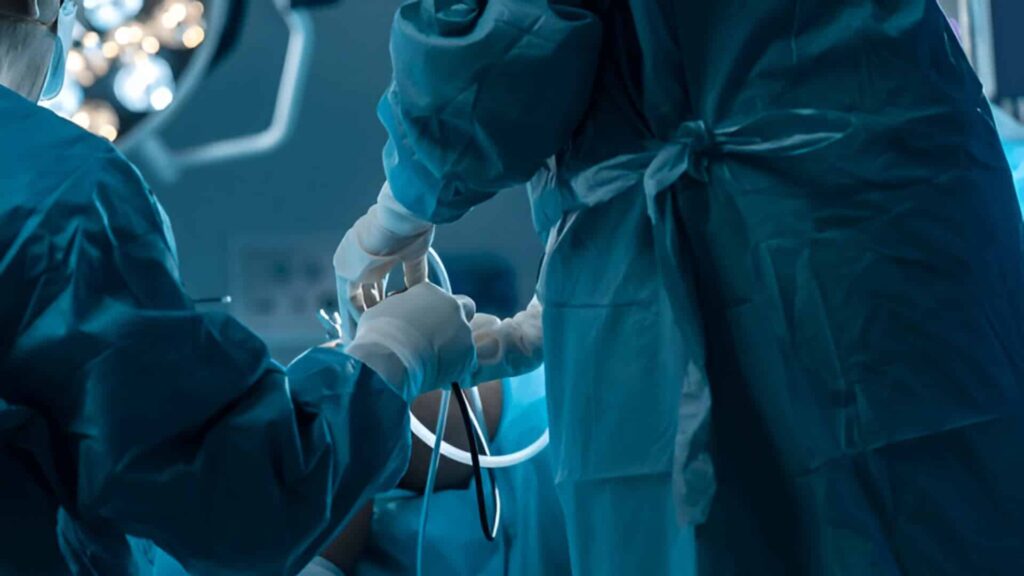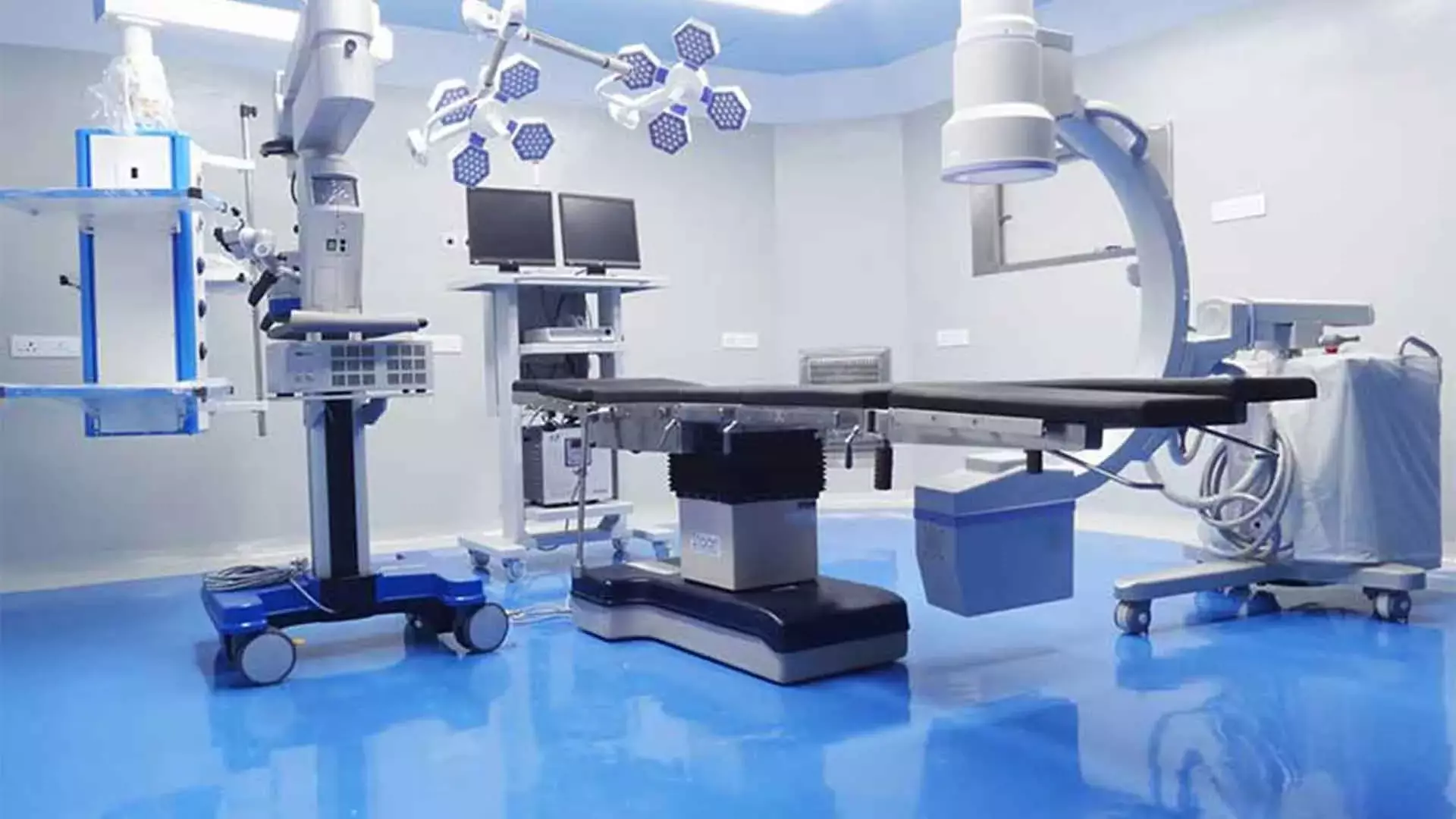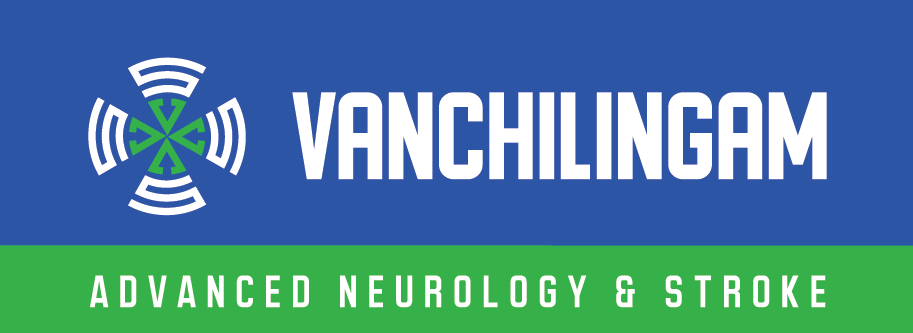Peripheral Nerve Surgery: Surgical Relief from Pain, Weakness & Numbness
Precision Nerve Repair at Vanchilingam
- Microsurgical treatment for nerve compression, injury, and tumors in limbs and extremities.
- Expert procedures including nerve decompression, repair, grafting, and tumor removal.
- Advanced diagnostics and intraoperative monitoring for nerve safety and accuracy.
- Personalized surgical care for carpal tunnel, brachial plexus injuries, neuromas, and more.
- For non-surgical alternatives, see Interventional Pain Management and Neurorehabilitation Services.
Peripheral Nerve Surgery: Restoring Function, Relieving Pain with Precision
“Surgical solutions for nerve pain, weakness, and mobility loss-so you can feel and move freely again.”
When nerves outside the brain and spinal cord become compressed, injured, or entrapped, they can cause pain, numbness, and functional loss in the arms, hands, legs, or feet. At Vanchilingam Advanced Neurology and Stroke Care, our Peripheral Nerve Surgery Program provides advanced surgical solutions for a wide range of nerve-related conditions-from carpal tunnel syndrome to complex trauma.
When Is Peripheral Nerve Surgery Recommended?
Surgery is typically recommended when:
- Nerve compression causes chronic pain or weakness
- Conservative treatments like medication or therapy have failed
- There is progressive muscle wasting or sensory loss
- Imaging or nerve studies confirm mechanical obstruction or damage
- Tumors, trauma, or scar tissue impair nerve function

Conditions Treated with Peripheral Nerve Surgery
- Carpal Tunnel Syndrome
- Cubital Tunnel Syndrome (Ulnar Nerve Entrapment)
- Brachial Plexus Injuries
- Foot Drop due to Peroneal Nerve Compression
- Tarsal Tunnel Syndrome
- Traumatic Nerve Injuries and Neuromas
- Nerve Sheath Tumors (e.g., Schwannomas, Neurofibromas)
- Post-surgical Nerve Entrapment or Scarring
Types of Peripheral Nerve Surgeries We Offer
Nerve Decompression Surgery: Relieves pressure from tight spaces (e.g., carpal tunnel release, ulnar nerve transposition).
Nerve Repair and Grafting: Direct repair or bridging of injured nerves using autografts or synthetic conduits to restore continuity.
Nerve Transfer Surgery: Redirects a healthy nerve to replace the function of an irreversibly damaged one-often used in brachial plexus repair.
Tumor Excision and Neurolysis: Microsurgical removal of benign nerve tumors while preserving normal function.
Neuroma Management and Ablation: Treats painful nerve endings after trauma or amputation to restore comfort.
Our Surgical Approach
- High-resolution MRI and nerve conduction studies for diagnosis
- Intraoperative neuromonitoring to preserve motor and sensory function
- Microsurgical techniques for precision and minimal scarring
- Multidisciplinary planning with pain physicians, physiatrists, and orthopedists
- Post-operative rehabilitation for optimal nerve recovery and function
Why Choose Vanchilingam for Peripheral Nerve Surgery?
- Specialist team in nerve microsurgery and complex trauma repair
- Neuro-navigation and monitoring for safety in delicate surgeries
- Individualized care plans tailored to condition, recovery goals, and lifestyle
- Integrated rehab and pain support after surgery
- Transparent communication with patients and families throughout the journey
Life After Surgery: What to Expect
- Gradual return of strength, sensation, and mobility in affected limbs
- Pain relief in compressed or entrapped nerve cases
- Post-surgical rehabilitation therapy to support nerve regeneration
- Regular follow-ups with nerve conduction testing to monitor progress
Feel Better, Move Better-with the Right Surgical Care
At Vanchilingam Advanced Neurology and Stroke Care, we understand how disruptive peripheral nerve injuries can be. With expert surgical care, many patients experience dramatic improvement in function, pain relief, and quality of life.
Reach out to us today to schedule a consultation and discover how surgery can restore your nerve health.
Meet the Specialists
Our team of dedicated specialists brings years of expertise and a passion for delivering personalized care.
Real Experiences, Real Results
Discover how Dr. Vanchilingam Advanced Neuro & Stroke Hospital has transformed the lives of our patients. Also hear our specialists talk about the services and solutions we offer for various neurological issues.





OUR SPECIALITY
Acute Stroke Unit
The Acute Stroke Unit is an acute neurological ward providing specialist services for people who have had a new suspected stroke. On the Acute Stroke Unit we provide: Thrombolysis treatment -treatment is started in the Emergency Department and you will have the rest of your Treatment and monitoring on the Acute Stroke Unit
OUR SPECIALITY
Advanced Neuro ICU
A neuro ICU is an Intensive Care Unit which is particularly devoted to a high – quality care of patients with the neurological problems that are life-threatening in nature. The neuro ICU of our hospital is a complete state of the art and a full-fledged one designed to provide almost all sorts of advanced neurological care to the normal patients as well as the patients in the emergency.
OUR SPECIALITY
Advanced Neuro Imaging
Our radiology department is a state of the art department with all the necessary infrastructure that is essential for effectively dealing with the neuro and neurosurgery emergencies at its best. The advanced neuroimaging techniques used by our doctors are as discussed below.
OUR SPECIALITY
Neuro interventional Cath Lab
A neuro-interventional Cath lab in a neurodiagnostic Centre is a specialized catheterization laboratory which has all the necessary diagnostic imaging equipment that is particularly used for the purpose of visualization of the arteries, veins and other vascular malformations of the brain and spinal cord.
OUR SPECIALITY
Neuro-Surgery Operating Room
The neurosurgery operating room of Dr.Vanchilingam Hospital, Neurosurgery Hospital is a fully functional and a state of art one that has the adequate infrastructure for effectively carrying out even the most complicated neuro surgeries with ease.
What is Peripheral Nerve Surgery and who needs it?
Peripheral Nerve Surgery addresses conditions affecting nerves outside the brain and spinal cord. It is typically recommended for patients experiencing pain, numbness, or weakness due to nerve compression, injury, tumors, or scarring, especially when conservative treatments have not provided relief.
Which conditions are commonly treated with Peripheral Nerve Surgery?
Common conditions include Carpal Tunnel Syndrome, Cubital Tunnel Syndrome, Brachial Plexus Injuries, Foot Drop, Tarsal Tunnel Syndrome, Traumatic Nerve Injuries, Neuromas, and Nerve Sheath Tumors.
When should I consider surgery for a nerve problem?
Surgery is considered when nerve compression leads to persistent symptoms, conservative treatment fails, there is muscle wasting or sensory loss, or diagnostic tests confirm nerve damage due to trauma, scar tissue, or tumors.
What types of Peripheral Nerve Surgeries are offered at Vanchilingam?
We offer a range of microsurgical procedures such as nerve decompression, nerve repair and grafting, nerve transfers, tumor excision, and neuroma management tailored to each patient’s condition.
How is nerve safety ensured during surgery?
High-resolution MRI and nerve conduction studies guide surgical planning. During surgery, intraoperative neuromonitoring helps preserve motor and sensory nerve function, ensuring precise and safe outcomes.
What makes Vanchilingam a preferred choice for Peripheral Nerve Surgery?
We offer specialist microsurgical expertise, advanced neuro-navigation, personalized care plans, integrated rehabilitation support, and transparent patient communication—all aimed at restoring function and relieving pain effectively.
What can I expect after surgery?
Post-surgical expectations include gradual improvement in strength, mobility, and sensation, along with reduced pain. Ongoing rehabilitation and follow-ups with nerve testing support your recovery process.
Can Peripheral Nerve Surgery help with pain from past injuries or surgery?
Yes, surgical options like neuroma ablation and neurolysis can relieve pain from nerve damage caused by previous injuries or post-surgical scarring, improving comfort and function.
Do you offer non-surgical options as well?
Yes, for patients who may not require surgery, we coordinate with our Interventional Pain Management and Neurorehabilitation Services to provide non-invasive alternatives tailored to the individual’s needs.











